One of Reagan’s geniuses was to convince people to vote against their own self-interest. In the name of lower taxes and the Cold War, he expanded investment in “defense” systems that benefited the oligarchs who brought him to power. Matt Tyrnauer, director of “The Reagans” on Showtime, joins Paul Jay on theAnalysis.news. This interview was originally published on February 17, 2021.
Reaganism is the Model for Trumpism – Matt Tyrnauer, director of ‘The Reagans’ pt 1/5
Ronald Reagan: The Face of Racism & the Military-Industrial Complex – Matt Tyrnauer (pt 2/5)
Reagan’s Racism the Model for Trump – Matt Tyrnauer (pt 3/5)
Reagan, the Media and the United States of Amnesia – “The Reagans” part 5/5
Paul Jay
Hi, I’m Paul Jay. Welcome to theAnalysis. Please don’t forget there’s a donate button at the top of the webpage.
In the documentary series, The Reagans, Grover Norquist, one of the leaders of the we don’t want to pay any taxes movement, says
Excerpt From The Reagans
So you want to abolish government? No, I don’t want to abolish government. I want to make it so small you could drag it into the bathroom and drown it in the bathtub. That small. Small as a bathtub. OK, very small.
The leadership that I envision would be to take the lead in getting government off the backs of the people of the United States and turning you loose to do what you can do…
Paul Jay
Here’s a clip from near the end of part three of the Reagans.
Excerpt From The Reagans
One of Reagan’s geniuses was to convince people to vote against their own self-interest. The notion that if you supported Reaganomics, you would have a better life when it wasn’t true, but you convince people to do it. Reagan realized something a lot of politicians were always afraid to admit. A lot of Americans are just selfish, and the best way to destroy a program is not just to tell people that it’s inefficient, it’s to tell them that they have to share it with somebody, especially if that means black and brown people in America.
Paul Jay
Now, joining me to continue our discussion about his Showtime documentary series The Reagans is Matt Tyrnauer, who’s also the filmmaker of Valentino: The Last Emperor, which was shortlisted for an Academy Award for Best Documentary Feature, and Where’s My Roy Cohn? another must-see if you want to understand the political forces that gave us Donald Trump. Thanks for joining us, Matt.
Matt Tyrnauer
Thank you.
Paul Jay
So Reagan campaigns for smaller government, and one of the messages of smaller government is you’re going to have tax cuts, more money in your pocket and all of this, and while, yeah, there was a smaller government, when it comes to social programs, there was a big expansion of government when it comes to militarization, and this contradiction between supposed smaller government and expansion of militarization is just one of the big complete, what can I say, mindfucks that people get their head around that creates a completely false consciousness about how the world works.
So talk a bit about that contradiction between small government and big military and how he sells this to people.
Matt Tyrnauer
Well, Reagan was sent to Washington to do the bidding of a particular constituency, and that constituency was a group of oligarchs. He specifically came from California, where there were a lot of aerospace and oil industry people with whom he had become very close with. In fact, they really invented his political career. They were nicknamed the Kitchen Cabinet, and a big portion of them were from those sectors of the economy. They were also vehemently for low taxes, but they were also for great government largesse when it came to building defense systems because that was the business that they were in.
So the world view of the Republican Party and specifically the rising right-wing Republican Party, which then adopted supply-side economics as its political theory, was eventually embodied by Reagan. When he got elected he did what he said he was going to do, which was to attempt to defund the parts of the government that were generous to the poor and the middle-class but to give a blank check to the Pentagon, and that’s a huge contradiction.
He wasn’t really for small government. He was only for small government if it was to benefit essentially black and brown people in this country, and along the way, he screwed over a lot of white middle-class and lower middle-class voters. In order to get them into his political tent, he plied them with dog-whistle racism. That was one way that he lured them into voting against their self-interest. Of course, walking around talking about tax cuts was a good way to fool people who thought that they might benefit from the tax cuts as well.
If they read the fine print, they would find out that not so much. The tax cuts were really heavily skewed to the upper-income brackets, and we’ve never really reversed those tax cuts. One of the reasons why I wanted to make this series is that the Reagan 80s set America on a seemingly inexorable path to becoming a much more unfair and oligarchic country, and you see it in Trumpism, people voting against their own self-interest to the umpteenth power.
Trump, of course, shouts the dog-whistle racism and uses the foghorn racism and it all becomes more overt, but you can see the origins of this strategy becoming successful under Reagan, which is why the Republican Party became so addicted to them because Reagan showed that it could work with the right frontman. I don’t think that Republican Party ever could have envisioned someone as vulgar and crass as Donald Trump taking over, but these are the lessons that we had to learn.
We’ve talked before in the previous conversation about the entertainer as president and the entertainer as a politician. Of course, Reagan really did set the precedent for that. The culture, I think, is in a state of entropy and great unraveling and devolving, so it makes sense that 20 years into the 21st century, a failing reality TV star would assume the presidency, where at the end of the 20th century, a failed movie star and fading TV star assumed the American presidency. It was just commensurate with the media landscape of the particular moment.
Paul Jay
And in an earlier session of our interviews, we talked about that quote. I think you said it was from Garry Wills about how Reagan knew how to play to the American psyche because he comes from within it himself. How much of that psyche is rooted in the Cold War, in McCarthyism and that whole outlook? And how much of the success of Reaganism, was the soil tilled for that in the Cold War?
Matt Tyrnauer
Yeah, I mean, Reagan was a quintessential Cold War figure even before his political career as head of the Screen Actors Guild, he secretly named names and got on J. Edgar Hoover’s good side. You know, the head of the Screen Actors Guild was very relevant to the director of the FBI because Hollywood was an essential element of the propaganda machine and was a kind of beacon of Americanism and a very powerful force in all levels of communication that could be harnessed for propaganda as it was very nakedly in World War two and very effectively, but after the Second World War, when the United States needed a common enemy to keep the game going, and the game I’m referring to is the military-industrial complex, the designated other enemy, without and then within, to create a culture of scare, which became known as the Red Scare, was communism, and Reagan, while he was kind of moving to the right, signed up for the Red Scare.
He played in his testimony before the House Un-American Activities Committee, really cleverly. He was head of SAG. He, as I said, named names privately, so he didn’t have to tarnish his reputation and seem like a bad guy. He was an expert at playing the good guy on screen and he knew how to play it off screen as well. So he gave the names as an FBI informant. I think T10 was his FBI code name, and then he gave testimony, which was rather bland, pretty winning. I have to say, if you look at the film of it, he seems kind of like a standup guy who’s trying to do his best to defend his industry, but also talk about how under his watch, communism didn’t get a toehold in there, et cetera, et cetera, et cetera. So he comes through the McCarthy period better than most, and that as his political career and interest in politics starts to mount and kind of meet an emerging political career later in the nineteen sixties sets a tone that he never really breaks.
He buys into the Cold War notion that the Soviet Union is, as he later called it, famously, an “evil empire”. He didn’t really coin that phrase or take up one of his speechwriters’ coinages until the 80s, but that’s how he emoted and acted about it, and that appealed to the emerging hard right of the party and the Goldwater wing of which he was a soldier, and then when he emerged as a politician, again, as the vessel of these California industrialists who are also crazily anti-communist.
Paul Jay
In the last interview we did, we talked a lot about Reagan’s racism, the dog whistles, making the white working class feel great again, which is more or less what that slogan “Make America Great Again” is about, which was Reagan’s, but in fact, his real assault was actually on the white working-class. It comes at a time of globalization when American companies are really starting to produce overseas, particularly, they’re starting to move to China or Mexico.
The computerization is making global supply chains so much more efficient and workable, the Wal-Mart model and so on, and Reagan launches this very public attack on air traffic controllers. So really his target is actually unions whose majority members are white workers.
Matt Tyrnauer
He plies them with racism and gets them on his side more or less. That was something that he was pioneering with dog-whistle racism. He was the only president of a union to then go on to be President of the United States, but one irony about Reagan is that he was always on the side of management. Even when he was the head of a union. He was frequently cutting sweetheart deals with his former agents, or I think they were still currently his agents who were also movie producers with MCA and Universal.
So he was cutting sweetheart deals for management when he was the head of a labor union. He wasn’t really your run of the mill, typical head of a labor union. Indeed, he fired all the air traffic controllers in his first couple of months as president. Shocking, but it was really sending a signal that he was going to try to dismantle the union movement, which was another part of the New Deal that he would have wanted to see and did kind of diminish in his mission to undo much of the New Deal and much of the Great Society.
Paul Jay
Well, after he goes after the air traffic controllers and everybody takes this as a real shot at the union movement as such, but to a large extent, he’s still able to maintain support amongst white workers.
Matt Tyrnauer
It’s Interesting, his tactic for going against the labor unions, specifically the air traffic controllers. He fired them. It was a draconian thing. If you see the film that we have, it’s truly a devastation to the workers, but at the same time, he sent out this kind of gunslinging symbol, which did very well for his image. This was the era where kind of John Wayne shoot from the hip populism merged with emerging Reaganism and that type of let’s be tough, take no prisoners imagery and image-making ended up serving him very well.
I think anyone who had a heart, who he would probably call bleeding heart liberals or today we would call, libs, I guess, or snowflakes would have looked really negatively on this, but it work for that sort of rugged individualist myth that Americans really want to believe in, when, of course, most people on so-called welfare in the United States have always been white and always been white, lower or lower-middle class, hoping to move up into the middle class, which is what the social safety net often achieved for them.
There’s a very difficult process for some reason in this country for people to understand that welfare is benefiting them if they’re white, and I think that because they’ve become the victim of politicians such as Reagan, who demagogue the issue and say that they have to share these programs with black and brown people, and it just absolutely scrambles everyone’s brain and they follow the lead of the demagogue on that. It came to an extraordinary manifestation in the Obama administration when he was trying to get Obamacare off the ground and the Tea Party was rising, and the slogan became, get the government’s hands off of my Medicare, which is an utterly nonsensical statement, but people were saying with a straight face and I think that encapsulates the syndrome that a lot of Americans fell prey to. I think that Reagan really pushed them into that kind of misunderstanding and self-inflicted harm.
Paul Jay
Reagan and whoever the brain trust behind Reagan were very adept at taking advantage of splits in the working class. So the obvious is race, but there’s another split that doesn’t get talked about very much. That is the minority of workers were in unions and the majority of workers were not doing anywhere near as well as unionized workers, and amongst many non-unionized workers, tremendous resentment of unionized workers, and then particularly at that time when jobs are starting to go offshore, the lie that was told to non-unionized workers is that it’s the high wages of unionized workers that is forcing the jobs out of the country.
So Reagan I think in firing the air traffic controllers and going after unions, was appealing to a very false premise, but a lot of workers had bought into it. That blame this all on, jobs are going to Asia because of these unionized guys and I’m standing up to the unions by firing the air traffic controllers because the unionized workers are screwing you, and the thing that’s interesting about it is there’s some truth to it in this way. Some of the unionized workers of the bigger unions, like autoworkers, had, for example, wonderful healthcare plans and the leadership of those unions and to some extent, the membership didn’t give a shit about all the workers that had no healthcare plans at all because these unions were only concerned about their own members and would not, for example, care about healthcare in terms of the whole society. It built up tremendous resentment. It’s not the only factor. So I think it’s another way Reagan was able to play on these splits and that division continues.
Matt Tyrnauer
There was a big opening there for him, and also the press didn’t cover unions. So there was very little out there to help explain to people exactly what was happening, because it was a very unsexy beat, and journalism really ignored it. With the rise of TV news and less in-depth reporting, which is something we haven’t talked about, I will actually launch into in a second here. It got short shrift, but Reagan’s presidency to that point coincided with a big change in the structure of television news.
Television news had been much more serious and segments were longer. It was personified by Cronkite and Huntley and Brinkley, who were very serious journalists in the mold of Edward R. Murrow. Everyone patterned themselves on that. They really were wire service reporters who were real reporters. Network news became more corporatized and more bottom-line oriented in the late 70s and into the early 80s especially. CBS in particular, which was owned by William Paley and was run as a sort of boutique Tiffany network fiefdom that really more than certainly now believed in the public trust of networks and especially network news, abandoned all that.
It was sold to another corporation, Loews Corporation, and the bottom line crept in and the news division’s priorities were changed. They became more like local news. They, in fact, hired local news chiefs to run the network news divisions and the storytelling became truncated and much more sensationalized and much more focused on human interest stories. Reagan benefited from that enormously because he was very sophisticated about communications. Mike Deaver, his staff member who was in charge of that, and also Nancy Reagan understood how to sell him as a kind of human interest story at all times.
And the networks, as Lesley Stahl says, she was at CBS the time that this all started happening, and she, in fact, says her bosses began to take negativity out of her stories because Reagan’s popularity ratings were high and they felt that his popularity would translate into high ratings for their TV news shows and therefore their primetime schedule because the TV news led into prime time. So that sort of softer news approach and less serious news approach and more susceptible news division to the charms of a celebrity president helped him enormously and hurt serious causes like unionism because they just didn’t get the coverage that they might once have gotten.
Paul Jay
The other sleight of hand, which Reagan was adept at, and I guess he wasn’t the first, but I, without doubt, think he was the most successful up until that point, was big government bad, any government to some extent bad, but big business good. That people could get their heads around big corporations were good and only government was in their way, and this whole idea that government at least was some democratic brake on corporations and big business, that in fact it was the opposite.
It was a break for the bad, not for the good. So even regulations to do with, seatbelts were bad or you name it. How do you understand the psyche that buys this big government – bad, big corporations – good?
I can get big corporations and government – bad. I can see how corporations use government against small business. No, it’s just government is attacking small business, not corporations, making them do it.This link between the corporate control of government [is missing].
This is why I think the liberal argument often didn’t work when talking to people, because it would kind of just defend government without really exposing the link between how corporations do use government against workers and small businesses and such.
Matt Tyrnauer
I mean, Reagan’s the personification of welfare for the rich, welfare for people like himself in the form of tax breaks, and in the case of the Reagan’s free luxury housing gifted to them by General Electric in the 1950s when he was a corporate shill for them and then into luxury public housing in the form of special governors mansions that were nicer than the normal governors mansions that Nancy Reagan refused to live in. So they are sort of symbolic of that, but Reagan himself was constantly selling this.
This was part of his mission and he was very good at it, actually, where he would pluck from Reader’s Digest and Human Events and other right-wing Republican magazines, these anecdotes about all of the hidden taxes that we ended up paying. And he was a one-man propaganda unit for that. He does an appearance on The Tonight Show with Johnny Carson between the governorship and the ultimately successful run for the presidency. Carson was a big liberal, but his producer was a big Republican in front of Reagan, so Reagan gets on the show, Carson’s very polite, and Reagan just does this sort of like bland monologue. Johnny you know, how many hidden taxes are in that suit of clothes you’re wearing right now, and then he talks about there’s a thread tax and the button hole tax and the whining and the glue tax, and he has this incredible way of doing a homily about how the government’s ripping you off when you’re all you want to do is just buy a brown suit, and that had tremendous appeal.
Excerpt From The Reagans
You know, there’s a state senator in Michigan and he just found out the other day they got a $93,000 study on whether chitlins are bad for you, and he said that as a fourth-generation chitlin, he figured that he could tell you how for 93 cents you could find out the answer to that. Well, we laugh at those things, but they do happen, I guess.
Oh, listen, you had some beauties and there some others. What would you say if I told you about one, a study in which this was called “The Demography of Happiness” and in this study, the government found out that young people are happier than old people. They found out that people that earn more are happier than people that earn less, and they found out that well people are happier and sick people, that’s good. That was $249,000 to find out it’s better to be rich, young, and healthy than old, poor, and sick.”
Paul Jay
Obviously his audience, I don’t know, was Carson in New York or L.A. at that time.
Matt Tyrnauer
L.A.
Paul Jay
It’s a very liberal audience, you can tell, and Reagan is so damn charming and his smile is so winning that even though everything he’s saying is just like the opposite of what these people in the audience believe, most of them, they wind up kind of being won over to him.
Matt Tyrnauer
Yes. Well he had an art which was keeping it simple, and that is a good art for a politician. I mean, these are the things that you can’t take away from him. If you want to be successful in politics in the media age, you need to be good on television, and now we know you need to be good at social media. He was particularly good at being relatable and he was a great simplifier.
Franklin Roosevelt was a great simplifier as well on the radio. I mean, these wonderful accounts of Judge Rosemann, the speechwriter, and Harry Hopkins bringing him drafts late at night in the oval study in the White House, not the Oval Office. He would frequently work in the study and work late, and he would send them back and say, you know, it needs to be much more simple or he would edit it himself. And Reagan was very good at that.
He indeed did annotate and add to his own speeches to make it more simple and relatable, but these slogans he came up with, some of them are immortal: “Government is not the solution to our problems. Government is the problem. That was a dog-whistle in a way that was code for more money in your pocket and more money in your pocket was a really powerful message for people who felt like they were being squeezed or it was also a kind of a chess move slogan that got you to the dog-whistle slogan, which is there are “welfare queens” who are taking up all this government money that could actually be going to you, or we could give you a tax cut with this money that these “young bucks” are using to buy T bone steaks with food stamps.
So this whole kind of construct of the imagination that he’s putting out there talking about the evils of government, which is really preying on the prejudices of people who are either innately racist because they were Southerners who were raised to be racist and have this set of beliefs or people who were susceptible to that type of racist political rhetoric.
And again, it worked, which is why Reagan is a perpetual hero to the right and the Republican Party, because he really knew how to win.
Paul Jay
Not only the right. When he died, Democrats were falling all over each other to praise him.
Matt Tyrnauer
Yes. Because he was a winner. He never lost an election really. I mean, he lost a couple of primary battles to get the nomination, but when he was directly on the ballot, he never lost. The Democrats, I remember I interviewed Horace Busby, who was one of LBJ’s main advisors, and this was on the eve of the Clinton election. It was one of the first articles I ever wrote actually. I was talking to Bugsby, who was a great Texas character, and I said, do you think Clinton will win. He said no, another Democrat will never win, the Democrats will never win another election. What he didn’t count on was that Clinton and his so-called triangulation would adopt a lot of the Reaganesque tactics of kind of pooh-poohing government, and Clinton himself says that “the era of big government is over” at I believe his first inaugural, which was a way of getting back those so-called Reagan Democrats who really liked that message.
So he used it as a way to get into office. And then certainly Bill Clinton was a lot more liberal than Ronald Reagan. I think that he did some good, but he got in there by adopting some of the tricks that Reagan had shown were successful.
Paul Jay
Some of his policies weren’t all that far from Reagan. Financial deregulation, mass incarceration, welfare reform. I mean, he built on a lot of the same policies Reagan had implemented himself.
Matt Tyrnauer
Absolutely. They were reskinned and kind of relabelled. And they did. Really if you read the Woodward book about the Clinton economic policy from the first two years (The Agenda: Inside the Clinton White House) it’s very clear that he’s adopting a Republican economic policy and his secretary of the Treasury, or head of Council of Economic Advisors was the head of Goldman Sachs, Rob Rubin, at the time, who was nominally a Democrat, but still a big Wall Street guy, and they had those interests as well. This is part of the knock-on effect of Reaganism.
Paul Jay
And the times, it’s a time where the financial sector is exploding and its political power is exploding.
Matt Tyrnauer
And that was due to Reagan. All of that deregulation started to get sown in the 1980s. The first great symptom of the corruption of it was the savings and loan scandal, and Reagan’s deregulation of that industry led directly to that.
Paul Jay
You talked a little bit about media. You know, these days with Trump, there was a media whose business model was defending Trump and the other business model attacking Trump. During the Reagan years what was the media like? Did they lay a glove on him?
Matt Tyrnauer
They really didn’t. The TV news production at that time, the news networks were undergoing an enormous shift and cable news started in the first year of the Reagan presidency. CNN went on the air. So you suddenly had a nascent 24-hour news cycle, which they adapted to relatively well. It was sort of a slow build-up, but Lesley Stahl, again, talks about being a puddle on the floor and all of her colleagues who were pretty tough on Jimmy Carter and were dogged good reporters, she admits, were very seduced by Reagan’s charm at the podium. Again, this is another effective thing that they did, which led Reagan, I think, into a great deal of trouble. He was not really shy about admitting that he was a front man. His aptitude and interest in the details of policy was nonexistent. He had a set of beliefs, a framework of beliefs that he was unshakable from. Anything that fell outside that belief system really was not of interest to him.
And there are a whole lot of things that presidents have to deal with that are outside of a low tax, low regulation, big spending on defense, Soviet Union bad, political belief system, which was pretty much the extent of it. That was great for politics, but for governing, not so good, and the press, again, because the substance newspapers were declining, then the substance of TV news was declining. The great commentators like Eric Sevareid to some extent, David Brinkley, who had been a very cynical commentator on the Washington scene, was losing his influence at that time.
Those voices were really fading and what was taking over was happy talk news and soft feature reporting. So when Reagan would go be photographed passing sandbags to shore up a levee on the Mississippi near his hometown because the town had flooded, that was the story on the news. Nothing about the farm bill and how he might have been screwing up for farmers or certainly nothing in depth about unions. So it was very felicitous time for him and they knew how to play the game very well.
So you have to give credit where it’s due. I mean, the modern communication strategies of the White House were pretty much invented in the Reagan period, and he really showed that he was kind of like a master of ceremonies, which curiously he played in a lot of movies. So there’s that kind of osmosis between his movie persona and his persona as the man in the Oval Office, and that’s enough to get by on in this country.
Now, of course, you can draw a direct parallel to someone who plays a successful executive of a huge, wonderful conglomerate, that’s the best we’ve ever seen, who is not bad at all. Of course, I’m talking about Trump perfectly. That fallacy, that unreality is perfectly acceptable to at least 40 percent of the American voting public and they’re willing to go with it. Reagan also proved that was a possibility.
Paul Jay
In the show, more and more, as the series unfolds, the figure of Nancy Reagan looms larger. She comes, I learned from the series, from a very right-wing family. Her father’s a real I don’t know if he was a John Bircher or a right-winger. How important is she in running the affairs of the nation and she seems even more, you know, she’ll play this dutiful wife externally, but she seems almost even more committed ideologically in terms of right-wing thinking.
Matt Tyrnauer
She comes from a family where her stepfather was very hard-right? Curiously, he was pro-choice. He was a brain surgeon, and he took a kind of medical view of abortion, which, he was kind of fading when Roe v. Wade happened. Reagan had, by the way, an abortion legislation when he was governor of California and he actually supported it. He said reluctantly thereafter, but it shows you how the politics in the United States has changed since the 70s when a Republican, even a right-wing Republican, could kind of survive having a pro-choice stance.
He changed his tune on that. It’s pretty clear, though, by the way, that Nancy Reagan was kind of pro-choice. She worshipped her stepfather. He was pro-choice. So it’s more than likely she was, and this is part of the incipient hypocrisy of the Reagans, is that they often expressed things as beliefs that weren’t their true beliefs to get the political gain out of them. Nancy Reagan’s right-wing household and her beloved father and also a mother who was probably pretty-right wing as well, Edith Luckett Davis, were an influence on her.
When Reagan married her in the late 40s or they started dating in the late 40s, might have married in 1950. He started to move progressively harder right, and she was a big influence there. Whether she had a coherent policy point of view, I think is more up for grabs. Later on when they ascend to the presidency. She takes on a central role at first as the – they call her the personnel director because she was truly in charge of staffing and all of her actions to protect Reagan from making mistakes and putting his foot in his mouth.
He couldn’t fire anyone. Famously, he was affable, so he hated to have conflict and refused to fire people and she was not afraid to fire people. So she would step in and do that or she would kneecap them. Ed Rollins, who was political director, used that term. Take him out at the knees. This is very powerful. Then in the presidency, there was definitely an increasing advisory capacity, and certainly in the second term, when his mental status starts to decline, his own son, Ron Reagan Jr.. talks about that in the series.
Nancy Reagan started to take over and really have much more of a hand in policy, calling cabinet secretaries directly, calling shots, big hand in pushing him into reaching out and accepting Gorbachev’s reach out to him. He was the hawks’ hawk before and she before he did, saw the possibilities of doing a kind of image reboot where the pro-nuclear war, which he was, believe it or not, people were in the 60s and 70s, politician became kind of anti-nuke peace negotiator because her big agenda was that he would get the Nobel Peace Prize. Gorbachev ended up getting the Nobel Peace Prize and Ronald Reagan did not, which I’m sure Nancy Reagan was furious about, but she was a great publicist for her husband and a great political adviser along those lines.
Paul Jay
Some people suggest near the end she’s effectively the president.
Matt Tyrnauer
I think that’s true. I think that he was flailing, he had Iran-Contra, he was depressed, he was in the early stages of dementia, he, I think, had gotten in way over his head. He was incredibly inattentive, as we’ve discussed, and the Iran-Contra scandal was a byproduct of that, that he didn’t really know what he was signing a lot of the times and his stuck laissez faire method, had served him well because he had been well enough protected, but this was something that was too deep for him to dig out of. Nancy Reagan did take the reins. Now, another aspect of this that we shed some new light on that is rather unbelievable, but true is that both Reagan’s were obsessed with astrology and it’s gotten laughed off frequently as, oh, this cute little joke or something weird about the Reagans footnote, but no, the Reagans, both of them were obsessed with astrology from the 40s down, Ronald Reagan as well.
You’ve got some amazing scenes in the series about this. Well, we talk to one of Nancy’s astrologers later, Joan Quigley, who not only was getting into scheduling with Nancy Reagan, which Nancy Reagan was intimately involved in. Scheduling a president is among the most powerful responsibilities. I mean, that’s deeply involved in the political program of the White House, and Nancy Reagan was absolutely overseeing all of that.
Paul Jay
She sounds more like a chief of staff than.
I think she was a first lady chief of staff. I mean, there was a troika chief of staff system in the first term, which was Baker who was preeminent, Deaver and Meese, but that power sharing scenario gave her a lot of room to maneuver and manipulate, and Mike Deaver was her sort of spy on the scene, and Jim Baker, whom we interview, understood that in order to succeed, he needed to charm Nancy, and Jim Baker had all of the great attributes to charm Nancy Reagan.
Matt Tyrnauer
He was wealthy, good looking, distinguished man who wore decent suits and was, you know, very smooth and a wonderful gossip and played her like a fiddle, and I think she, in turn, played him like a fiddle. So that’s how she exerted her power. It became much more overt in the second term where Baker had swapped jobs with Don Regan, who had been Treasury Secretary and then became chief of staff.
That’s when Nancy Reagan took out the knees because there was a unicameral chief of staff then, and he clashed with Nancy Reagan and she destroyed him and then more or less took over because they had weak chiefs of staff after that, Howard Baker, and then there was a kind of caretaker figure at the end of the administration.
His son, Ron. Ron Jr.. shows up in the series quite often. He sounds like a very progressive voice. I can imagine he might even have supported a Bernie Sanders these days.
Excerpt From The Reagans
My father was kind of a strange fellow to be president of the United States. Nothing like being in the saddle.
Paul Jay
Talk about your relationship, interviewing him and how does he you know, I guess it’s not the first time a child ends up with opposite polar politics to the parents, but he seems quite opposite.
Matt Tyrnauer
Yeah, I think what he says in his own memoir that he would have voted for Walter Mondale in 84 if Reagan hadn’t been his father. So I think we know where his political sympathies lie. Patty Davis was sort of like a parallel Jane Fonda figure, always kind of undercutting her parents throughout the 80s and the 90s. Ron Jr. was more circumspect, but I think it’s been long enough since his mother has left us that he felt much more free to speak his mind and talk about the failures of his parents’ political belief system and their policies, he’s very overt about it. We had a six-plus hour interview and he was extraordinary I thought. I think the way he’s dealt with, first of all, being the son of people like that, which I don’t think can be easy. I think his father was, he writes himself his father was a very distant figure. His mother, I think, was clearly difficult and probably a very difficult mother.
Patty Davis has revealed a lot about that in her memoirs, and I think he’s come to terms with it, but his coherent speeches about what created the politician, Ronald Reagan, as well as the father, Ronald Reagan, are really fascinating, and I think are very intelligent and quite revealing.
Paul Jay
Have you thought of releasing the whole interview in some way?
Matt Tyrnauer
Yeah we can do that? I’d love to do that.
Paul Jay
I think it’s an interesting arc.
Matt Tyrnauer
One thing he did get into was astrology. I would add astrology is so important that when Nancy decides to push Reagan toward Gorbachev, she relies on the astrologer to advise her about that. And the astrologer did Gorbachev’s chart. And a lot of the summitry was planned, according to the matching of Ronald Reagan’s chart with Mikhail Gorbachev’s chart. And this is no joke. So in a way, all to the good, but it’s an incredibly bizarre circumstance. Where this person, Reagan, who was impossibly hawkish, I mean, terrifyingly hawkish, really, at a time when the Cold War was at its hottest and then he made it even hotter when he got into office. He was such a devotee of propping up the military-industrial complex, decides for reasons, having to do with legacy, image, and astrology to do this almost perverse, reaching out and pivot with Nancy Reagan very much fanning the flames of that. It has to be one of the most bizarre and high-stakes moments in the history of the world.
Paul Jay
Did you ever get a sense of whether the astrologer really did those charts or she just wanted them to get together so the world wouldn’t blow up?
Matt Tyrnauer
Oh, no. I think she really did. I think the astrologer was a rather right-wing Republican actually. I think that she must have had those sentiments. I think she understood that world peace was probably a good thing. There was a big opportunity here.
Paul Jay
Well, in the next segment of the interview, because we’ve got one more to go, we’ll be talking about the whole summit with Gorbachev and Star Wars and all of that.
So we won’t get into all of that more now, but we’re sort of on the personal note. With the two kids, at least politically estranged, were they estranged other than politically, did they actually tune out of from their parents?
Matt Tyrnauer
Both Nancy Reagan and Patty Davis write about this extensively, actually. Nancy Reagan wrote a rather bitter memoir called My Turn. It must be the most score-settling bitter First Lady memoir in history, and she basically just goes after Don Regan because Don Regan had written a memoir where he outed the astrology, and you hear Helen Thomas questioning Reagan about Nancy being a dragon lady in the Oval Office, and Reagan gets very offended.
He’s very shrivolic and defends Nancy and says that the idea of her being a dragon lady and running the White House is absolutely absurd. No, it’s not, but anyway, he seemed noble and heroic, but My Turn is her response to Don Regan’s memoir, and she writes very openly about her, frankly, terrible relationship with Patty. Ron Jr. was much closer to his parents. He writes about them in his memoir, which is called My Father at 100, which is an excellent book where he retraces a lot of Reagan’s steps in Dixon, Illinois, along the banks of the Mississippi, in the Rock River, where Reagan was a lifeguard and the myth of Reagan was born, because Reagan himself was midwife to the myth, and from this strangely early age start self-mythologising. Ron Jr. is particularly good at debunking the myth-making of his father, which snowballed over the years and became enormous when he was in Hollywood and a movie star and was aided and abetted by the publicity department of Warner Brothers and the gossip columnist Louella Parsons, who was from Dixon, Illinois, and took him up as a special project. Ron Junior analyzes all of this as a very sophisticated retelling of his father’s story through the detective work that he did, and he presents all of that in the series, and I give him enormous credit.
It’s an important scholarly work I would even go so far as to say and mythmaking and symbol making is the art of Reagan. Gary Wills, who writes about life on the Mississippi, as it were for young Ronald Reagan, does a very sophisticated and scholarly analysis of this as well, 20 years before, 30 years before even Ron Jr.. gets at it, and those two books taken together, I think would be a wonderful primer for anyone looking for reading material as a way into understanding the real Reagan.
Paul Jay
Well, let me say, watching your series is also an important way to understand the real Reagan. And let me I don’t know whether Showtime is going to like what I’m about to say or not, but even if you got to sign up for one month, go get the one month and watch it, and then you could decide if you want to stay or not, but this is a series people should watch. All right.
So Matt and I are going to do one more, and the next we’ll get more into the whole Gorbachev meeting and some other of those kinds of questions. For now. Thanks for joining us, Matt.
Matt Tyrnauer
Thank you.
Paul Jay
And thank you for joining us on theAnalysis.news, and please don’t forget there’s a donate button at the top of the webpage.
Podcast: Play in new window | Download | Embed
Subscribe Apple Podcasts | Spotify | Android | iHeartRadio | Blubrry | TuneIn | Deezer | RSS
Never miss another story
Subscribe to theAnalysis.news – Newsletter
Matt Tyrnauer is an American film director. He directed the documentary feature Valentino: The Last Emperor (2009), which was short-listed for an Oscar nomination in 2010, Citizen Jane: Battle for the City (2016), the Emmy nominated, Scotty and the Secret History of Hollywood (2017), the 2018 documentary Studio 54 detailing New York’s famed Studio 54 nightclub, Where’s My Roy Cohn? (2019), and the Showtime four-part series, The Reagans (2020).
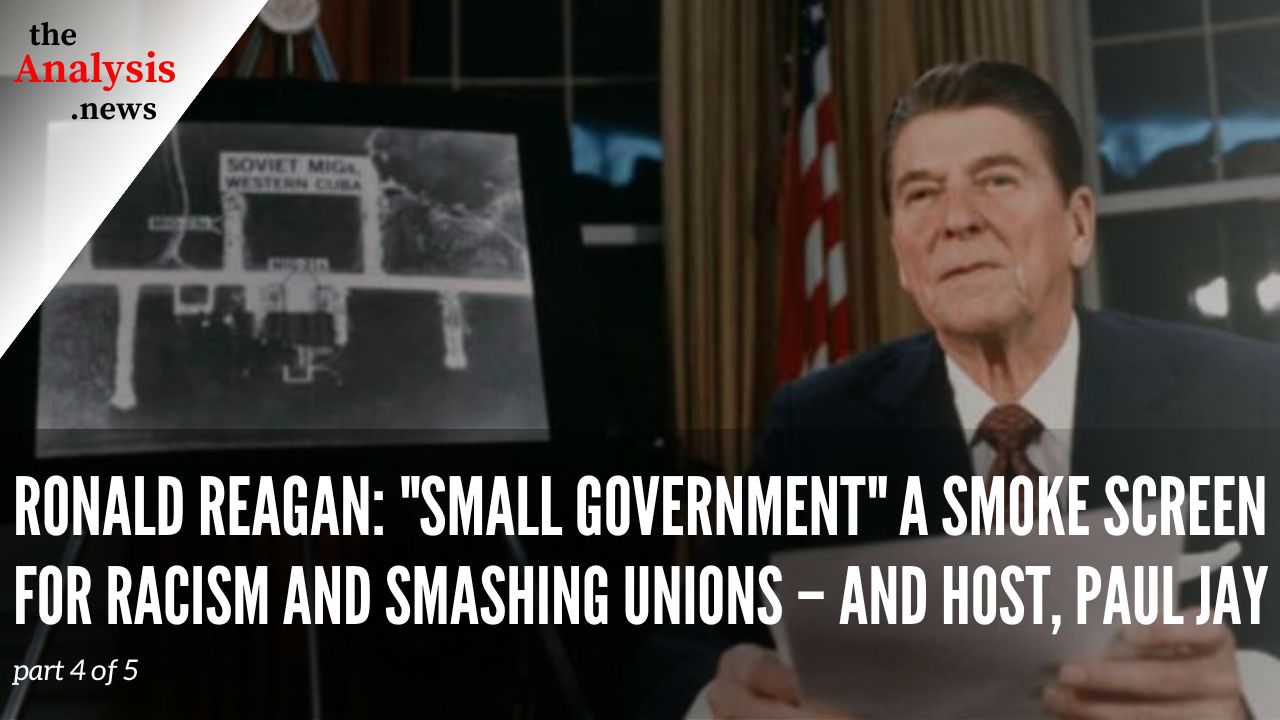
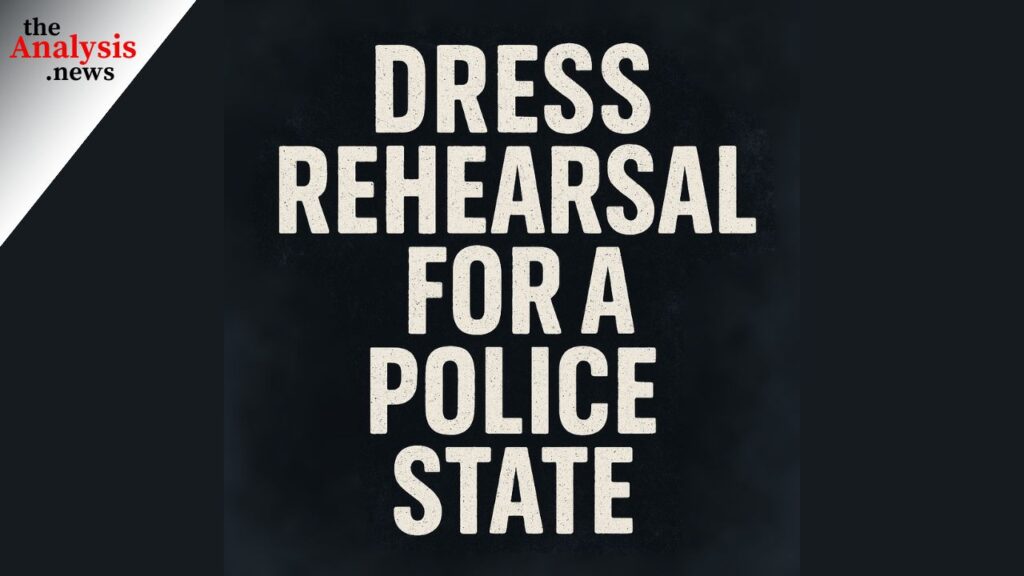


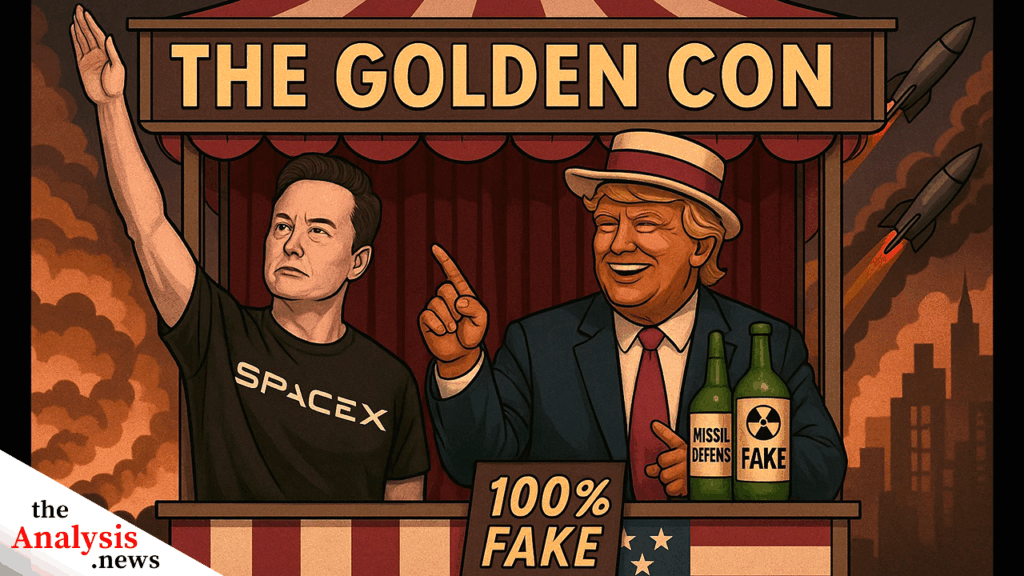
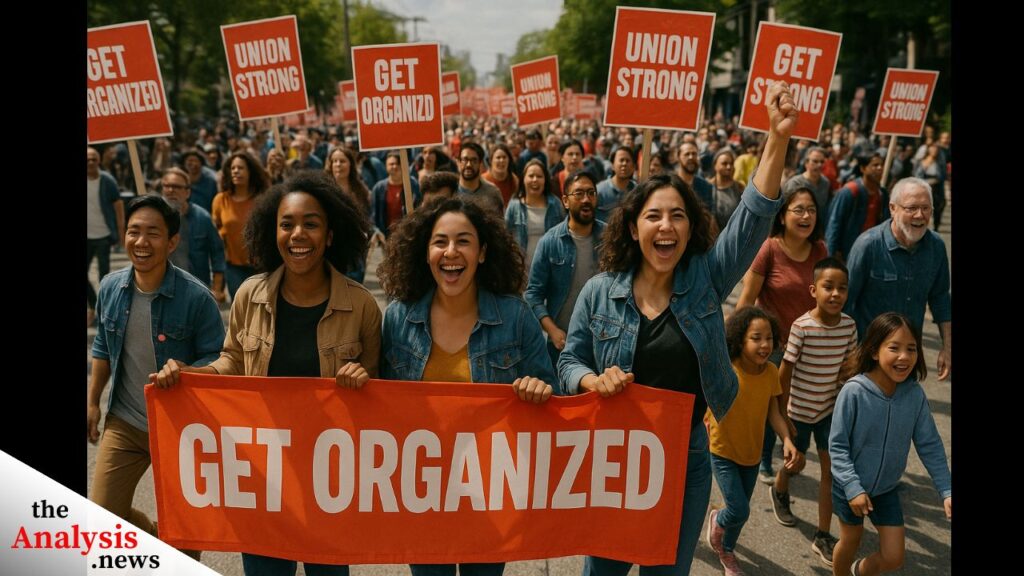
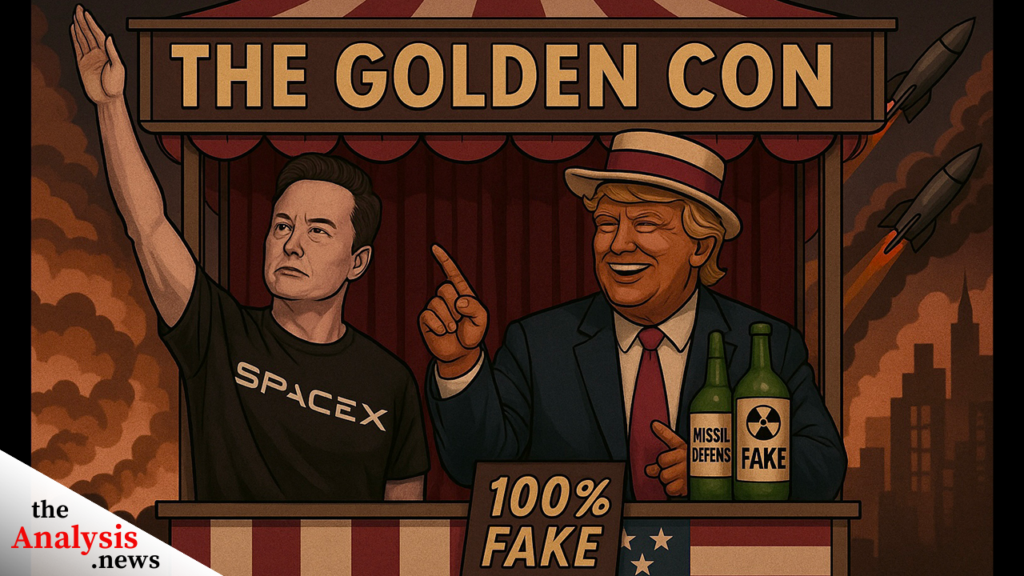
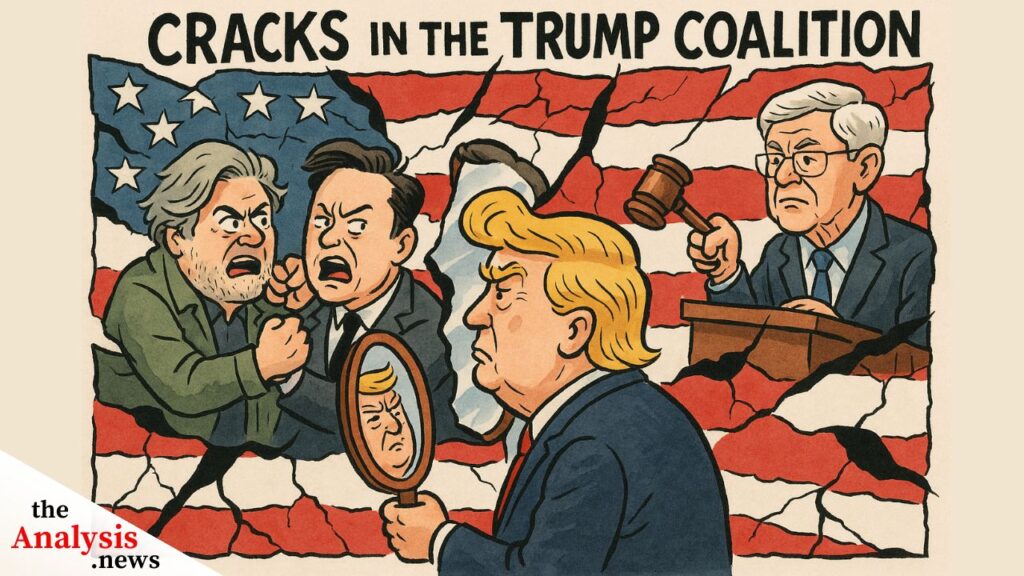

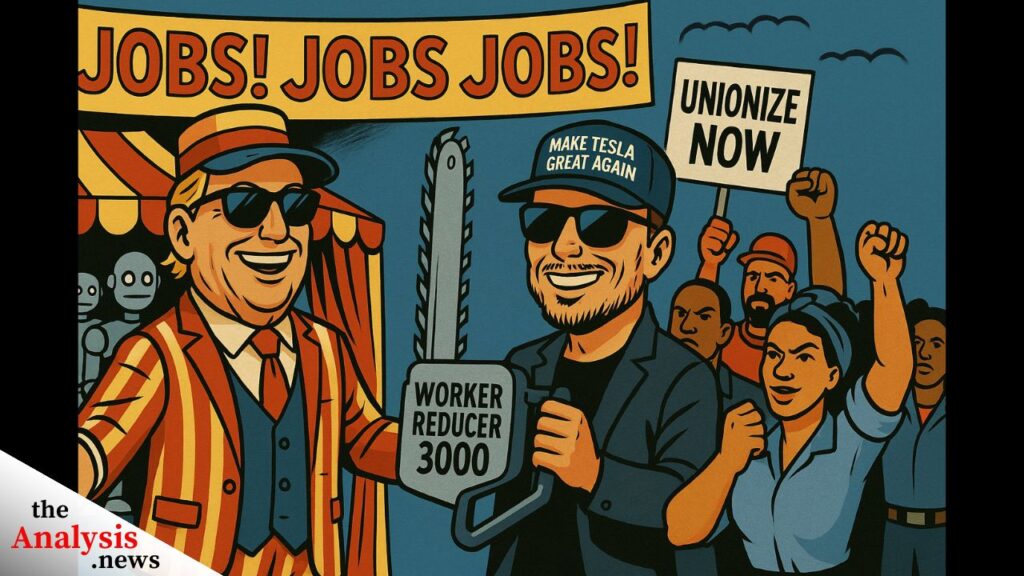
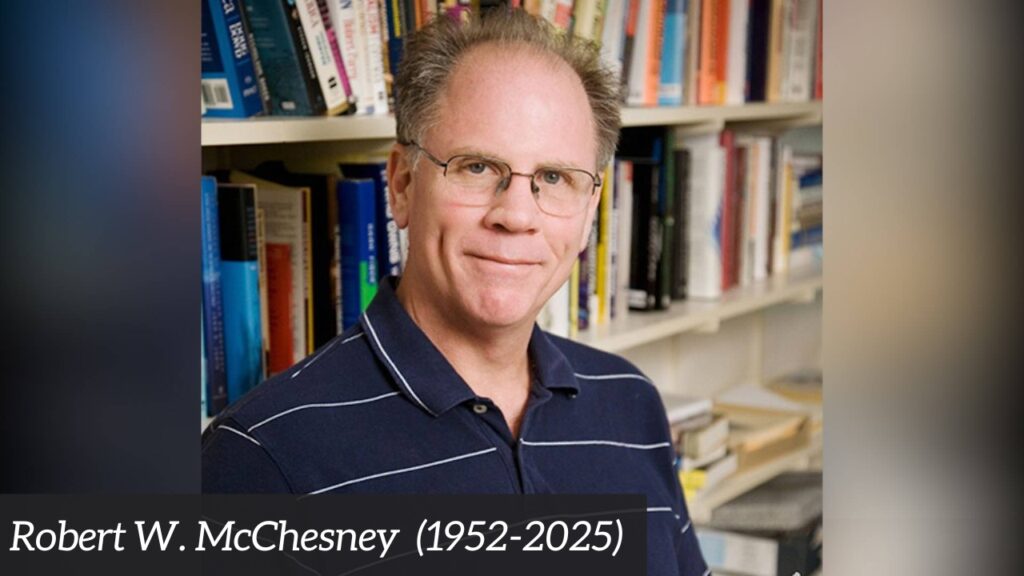
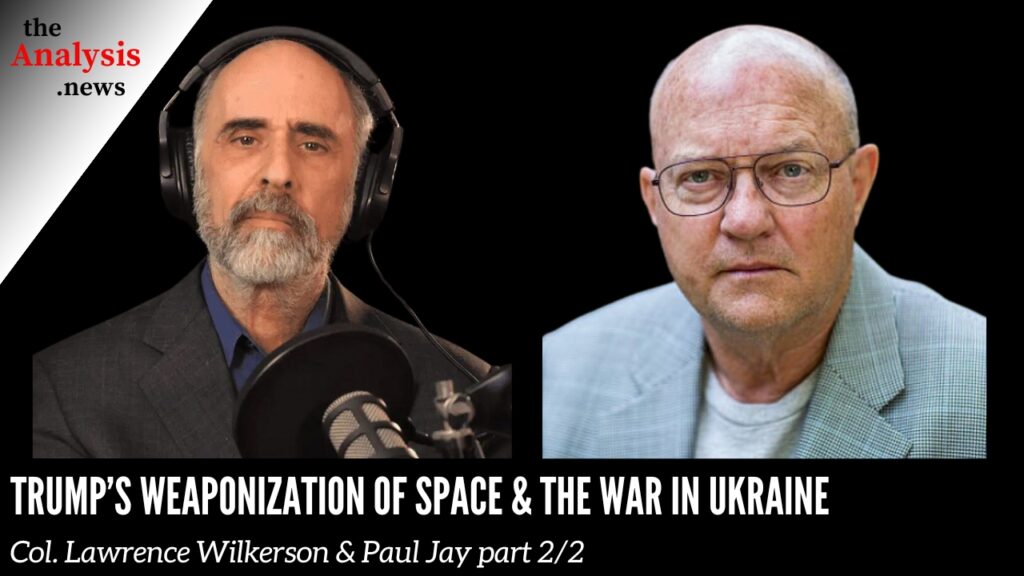
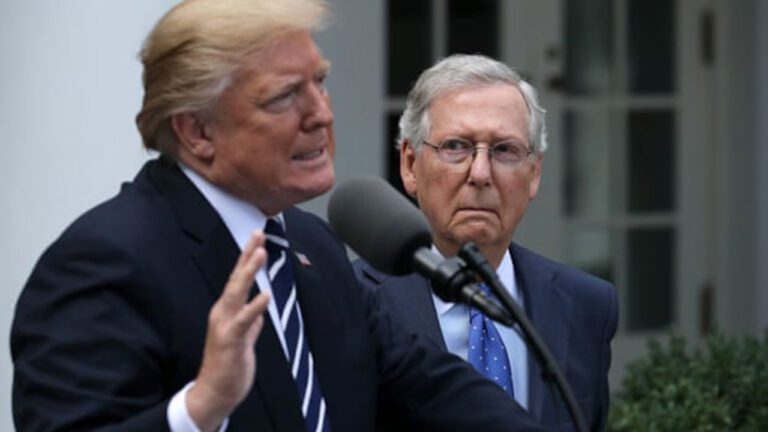
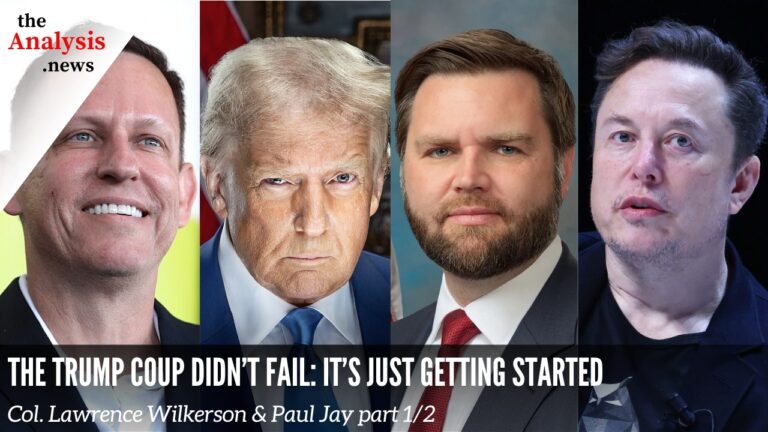
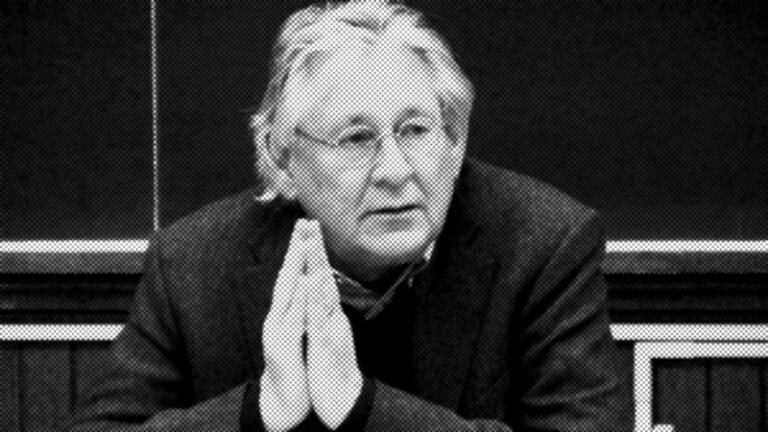
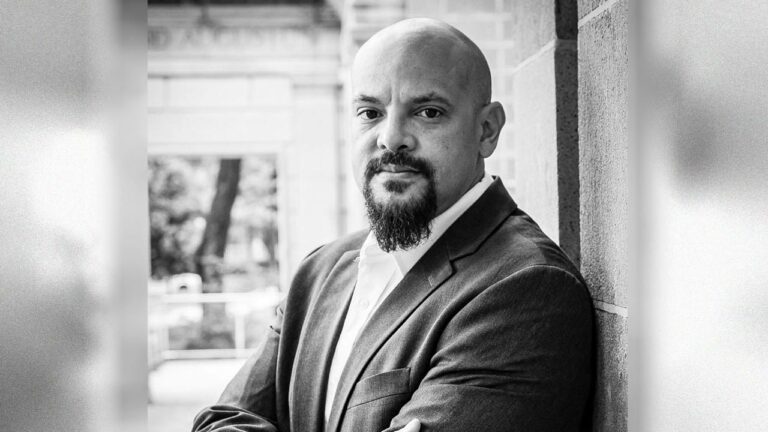


Riveting
Have you considered an interview with Joel Bakan and his new book/documentary The New Corporation?